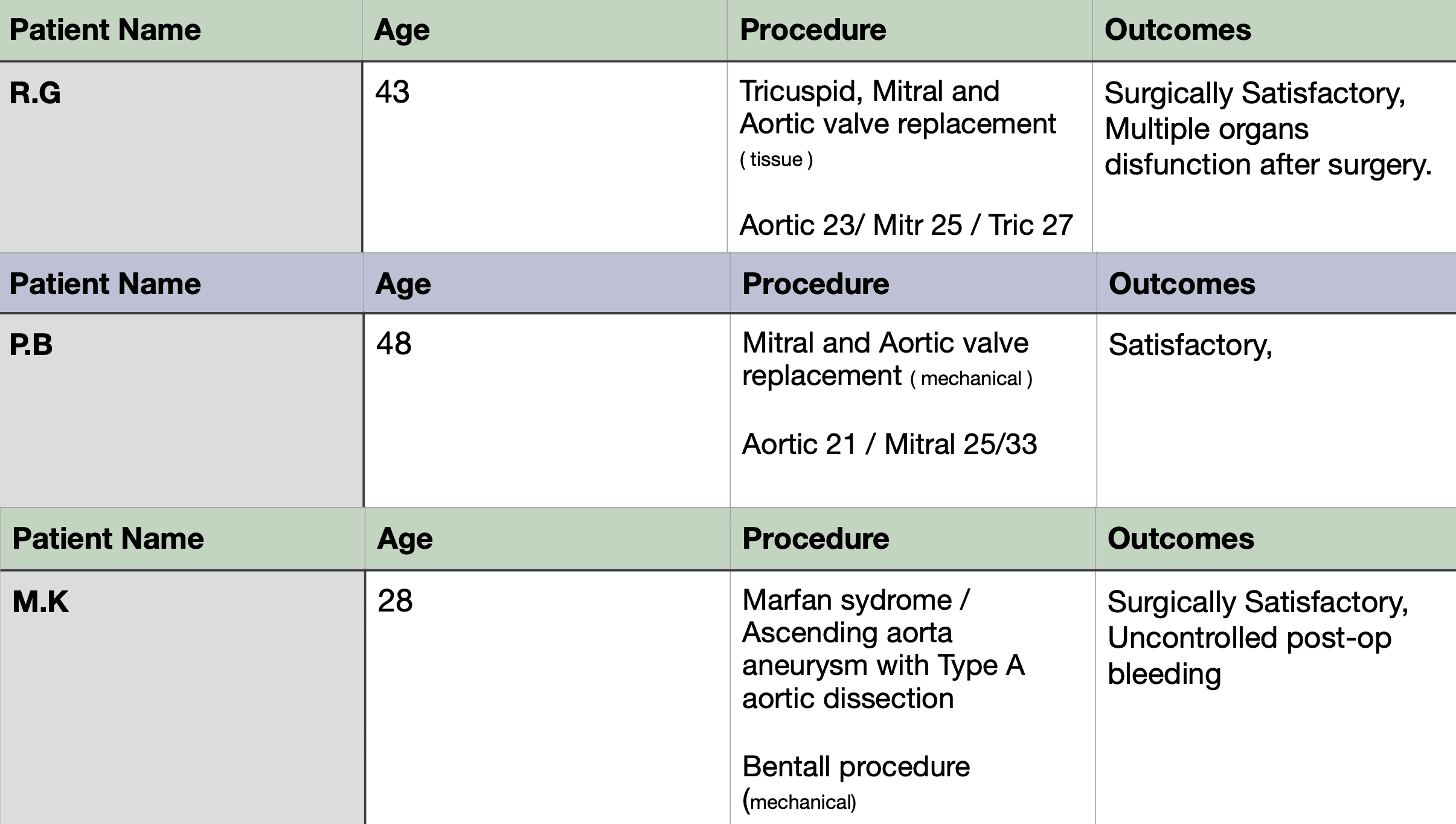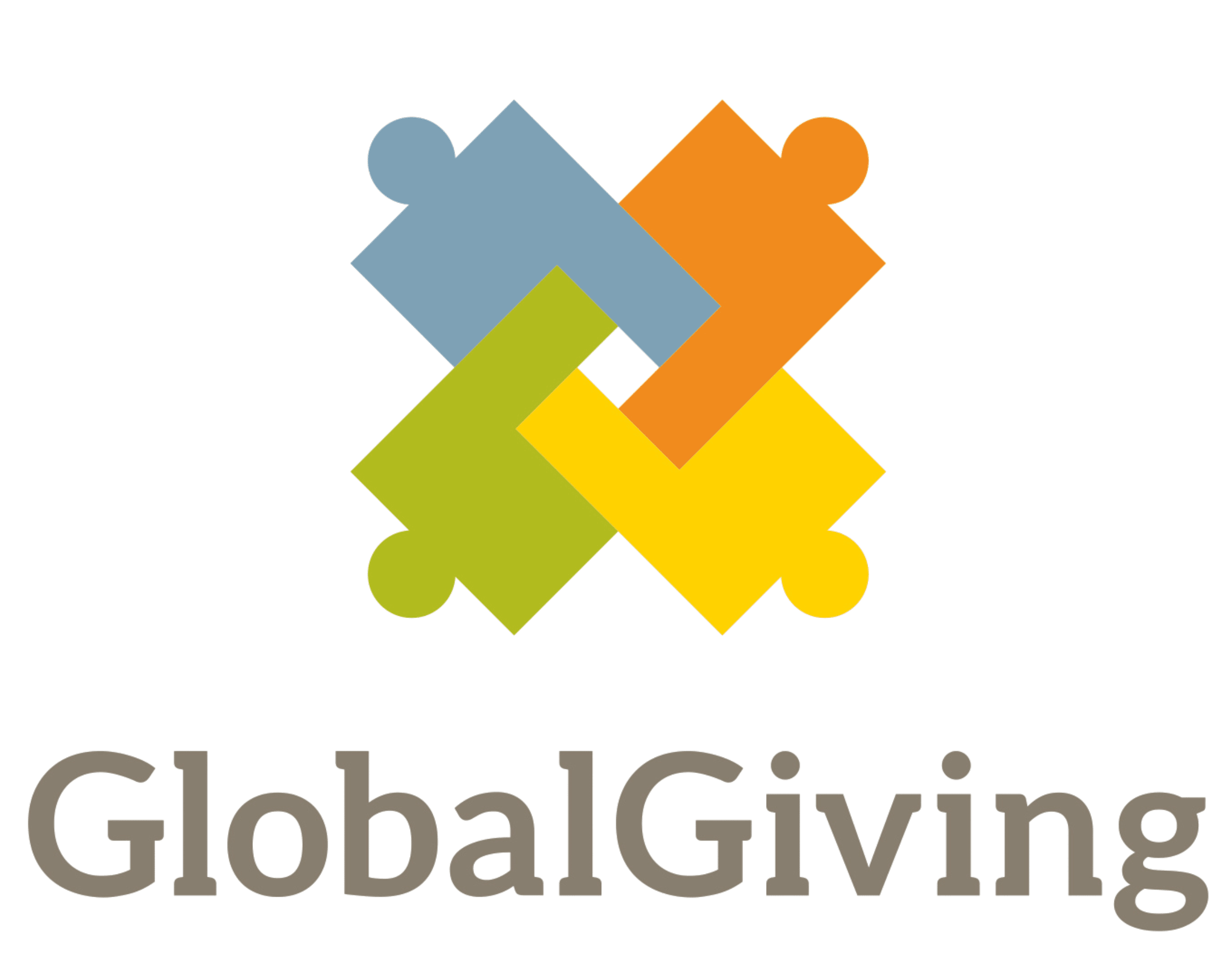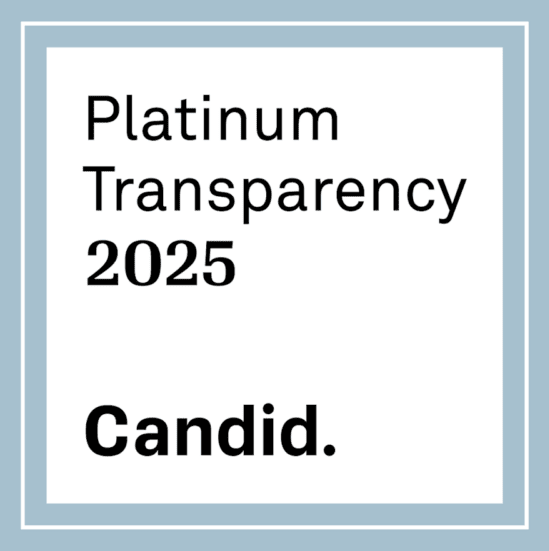Accra, Ghana
CardioStart Mission Announcement to Accra, Ghana
Adult Cardiac Surgery & Critical Care
June 15-21, 2025
On June 15th, 2025, CardioStart International alongside Arrhythmia alliance performed a mission to the University of Ghana Medical Center, Accra, in continued support of advancing this important cardiovascular program. Our Team has worked alongside local healthcare professionals to preform complex cardiovascular surgeries and deliver hands-on training. Nine volunteers from four countries came together to accomplish this goal in Accra, Ghana.
During our visit to UGMC Hospital, we had the opportunity to meet Dr. Abdul Samed Tanko, the new CEO of the institution, and to strengthen our relationship, ensuring the continued support of the local population through our assistance program and the ongoing transfer of knowledge in high-complexity cardiac surgery cases.
The collaborative local and CardioStart teams completed 5 complex and high risk cardiovascular interventions, multiple evaluations and treatments, as well as ongoing multidisciplinary skill transfer and education. Due to the severity of the cases, we experienced the postoperative loss of two patients in the ICU. These were critical cases that required the dedicated efforts of the entire medical team, including anesthesiology, nursing staff, and other specialties. The remaining three patients showed positive recovery and were discharged from the ICU to the ward, despite the seriousness of their clinical conditions.

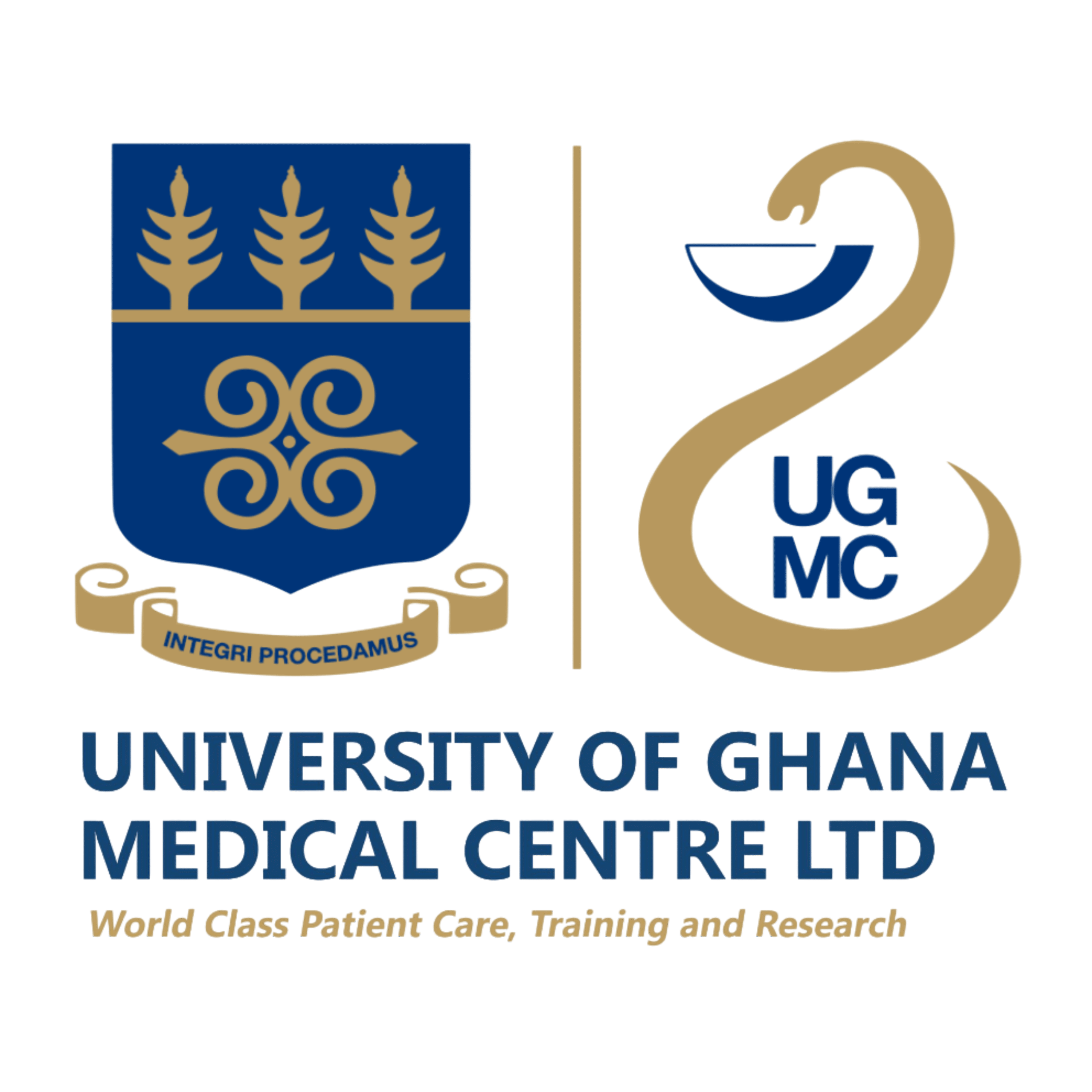
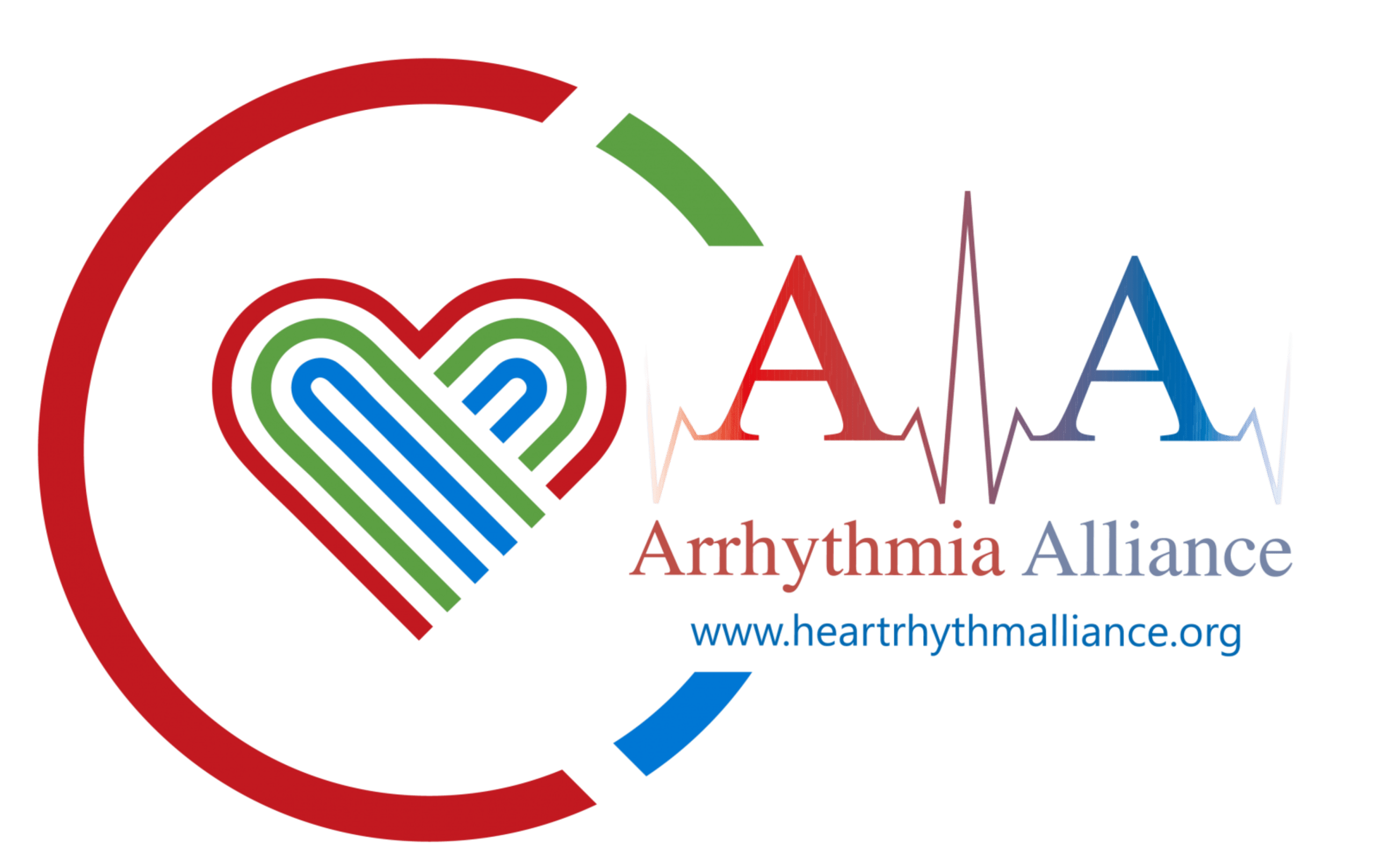
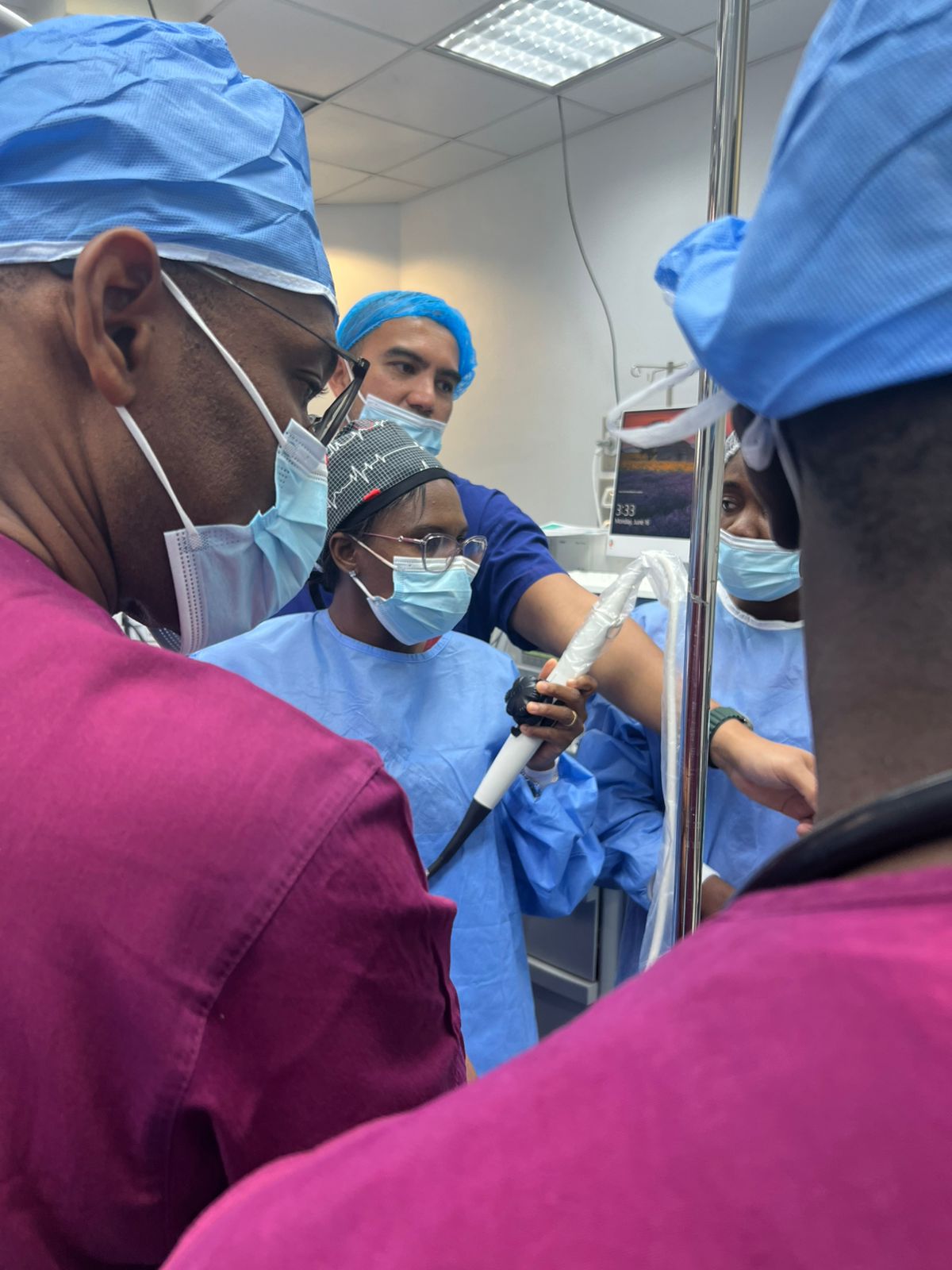
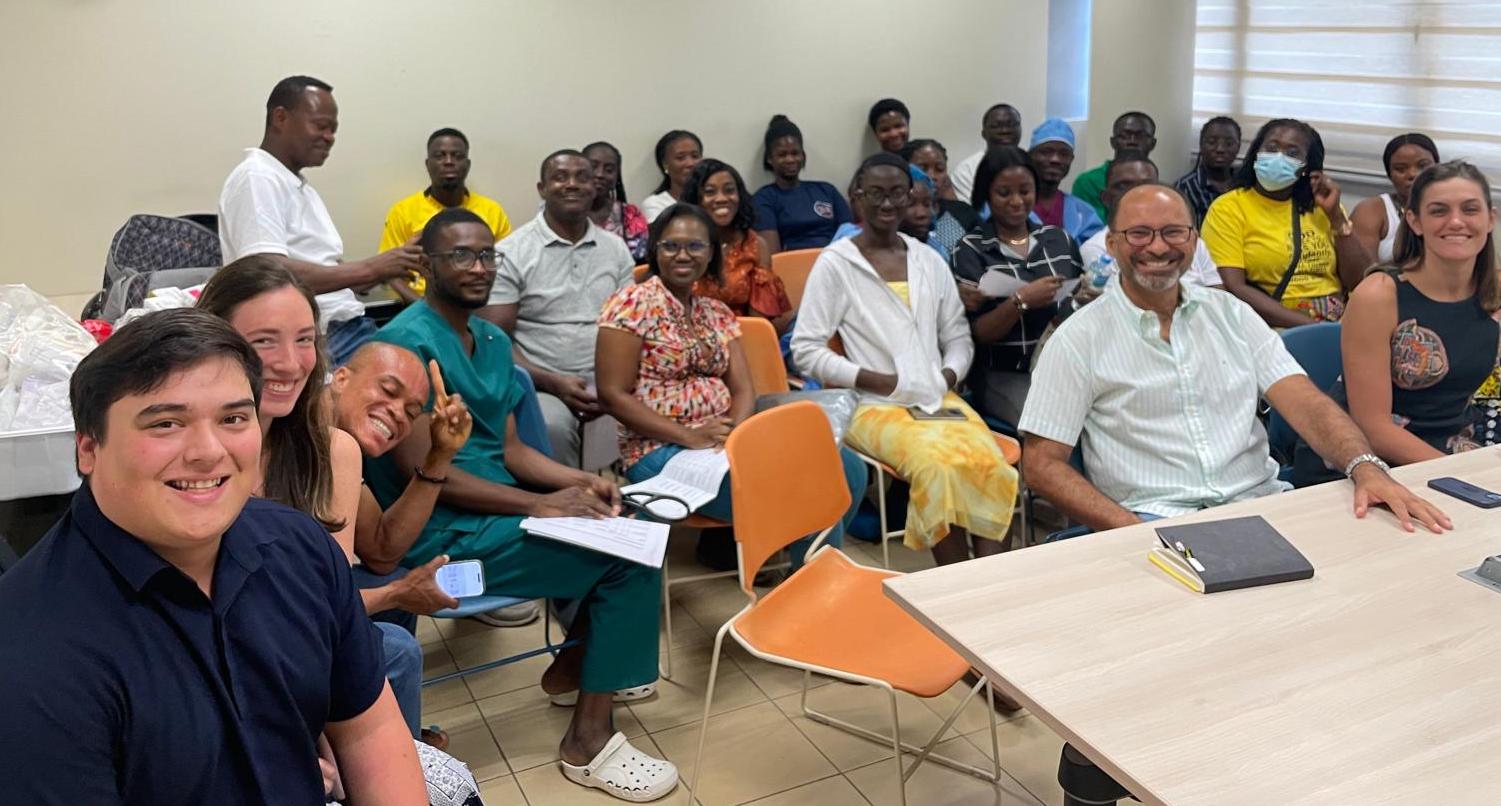
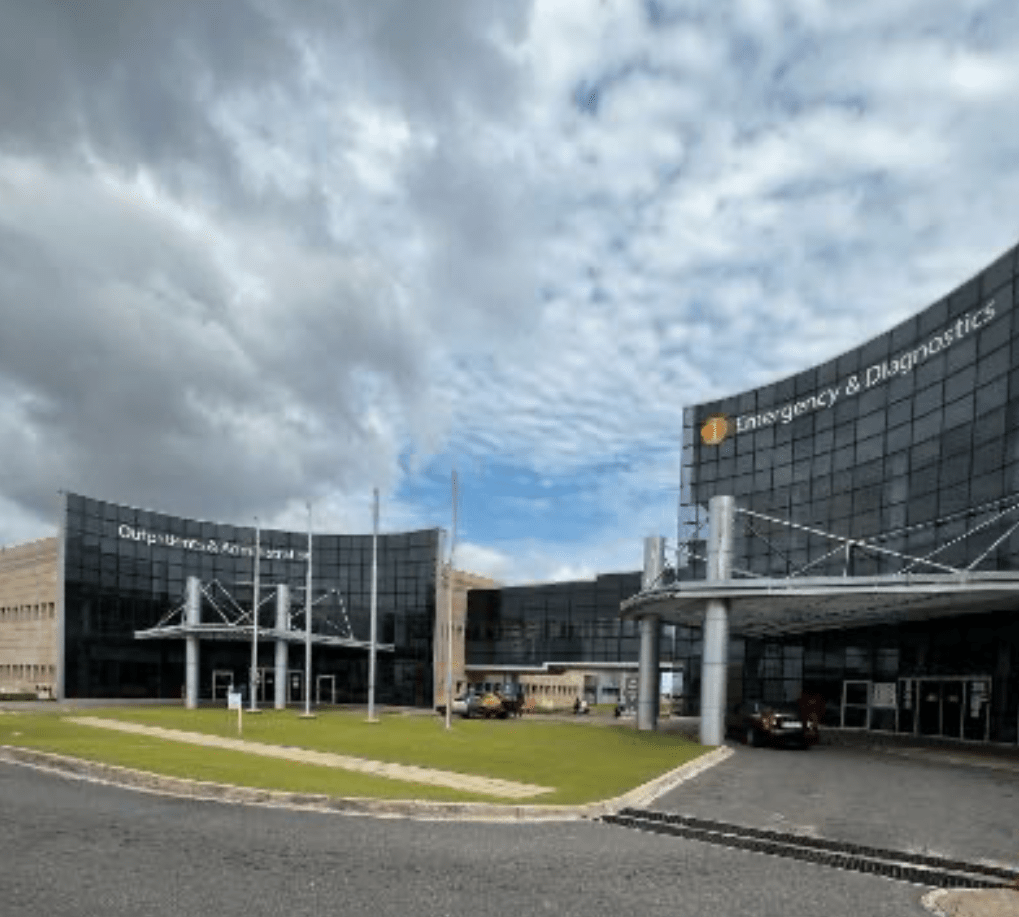
A few weeks before embarking on the mission to Accra, we initiated a pre-selection of potential patients for the cardiac camp week. Therefore, on the very first day upon our arrival in Accra, we conducted the patient selection. Through the multidisciplinary team, including cardiologists, echocardiographers, anesthesiologists, pharmacist, blood bank manager, Bioengineers, nurses and cardiac surgeons, we reassessed all the pre-selected patients, reviewed their medical records, checked laboratory results, examined imaging studies such as CT scans and catheterization.
After intensive discussions of the cases and an analysis of the severity of each condition, the possibility of surgery, and the necessary materials for each procedure, we decided to safely perform four surgeries during the mission. All four surgeries were of high complexity, including one case of Ascending aorta dissection, a patient with biventricular dysfunction and triple valve replacement patient.
On Tuesday, we were faced with an emergency case that arrived through the Emergency Department involving a retired American soldier who was hemodynamically unstable upon admission. He was diagnosed with a ruptured abdominal aortic aneurysm, requiring immediate surgical intervention. The patient successfully underwent emergency repair surgery and had a favorable postoperative course.
If we reflect, while performing only five surgeries might not seem like a large volume, but the complexity of these cases was truly significant. Each surgery involved meticulous planning and careful evaluation, with some lasting as long as 10hours. The team had to undertake detailed and thorough assessments of each patient’s condition, making the procedures incredibly demanding. Despite the relatively small number of surgeries, the experience gained was invaluable for the local team, providing them with an exceptional learning opportunity.
These cases not only challenged the team’s skills but also deepened their understanding and strengthened their expertise in managing complex cardiac conditions.
Unfortunately, during our stay, as previously mentioned, we were presented with critically ill patients who required intensive care management in the ICU. We approached patient care through a multidisciplinary effort involving nephrologists, general surgeons, cardiac surgeons, anesthesiologists, physiotherapists, and nurses — all of whom gave 100% of their skills and dedication. Some cases required hemodialysis and sternal re-exploration in the ICU due to significant postoperative bleeding. Despite the correction of the primary pathology and the full commitment of the team, some patients, due to the severity of their conditions, did not respond as expected and did not survive the established treatment. We unfortunately lost our patient who underwent triple valve replacement, as well as the patient with Marfan syndrome associated with a acute ascending aortic dissection.
In summary, the cases were primarily composed of patients with rheumatic heart diseases, and aortic aneurysm mostly presenting with advanced clinical conditions, where complicating factors of the disease could be observed, such as atrial enlargement, increased pulmonary artery pressure, ventricular dysfunction, atrial fibrillation and aorta dissection.

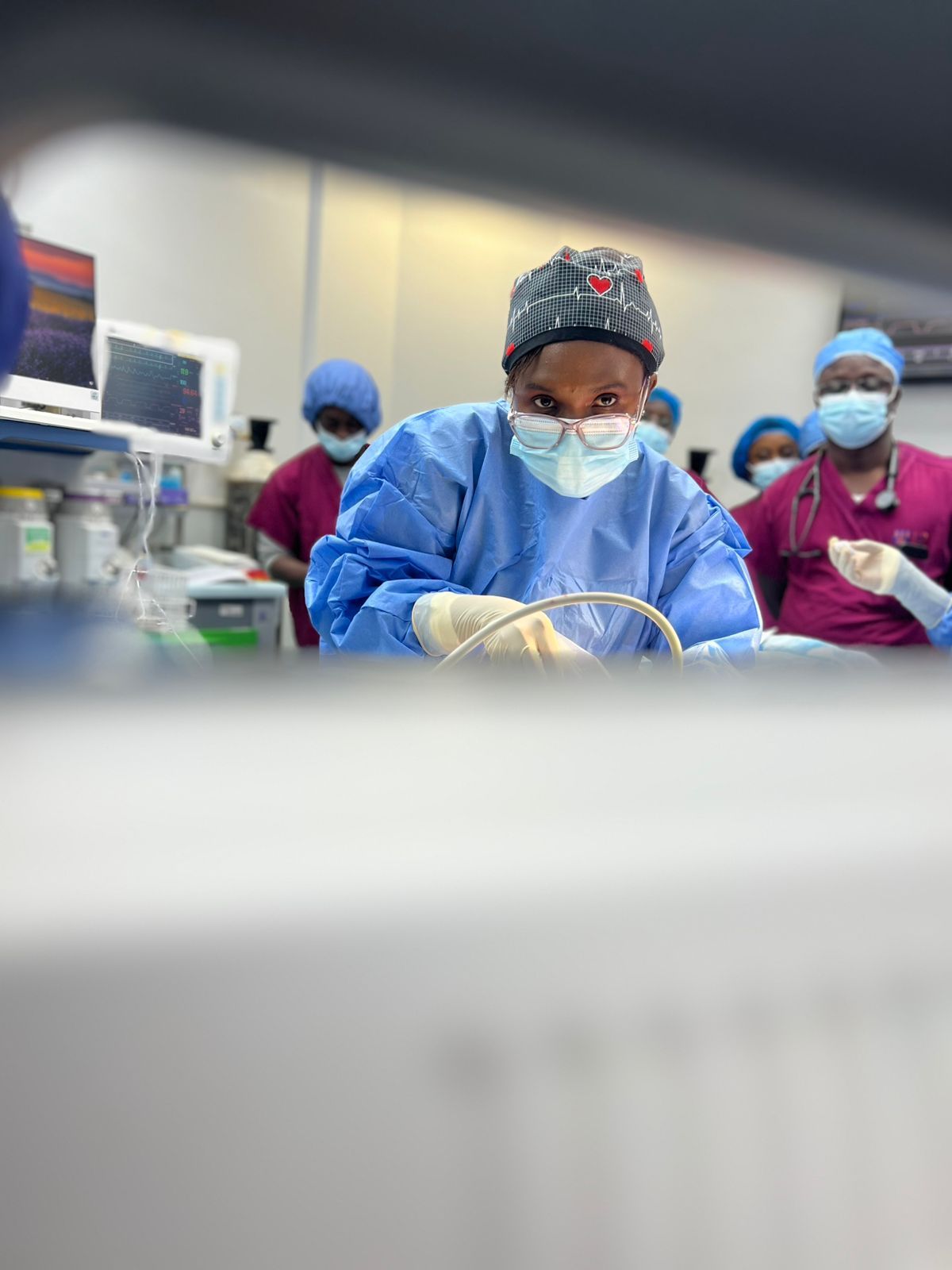
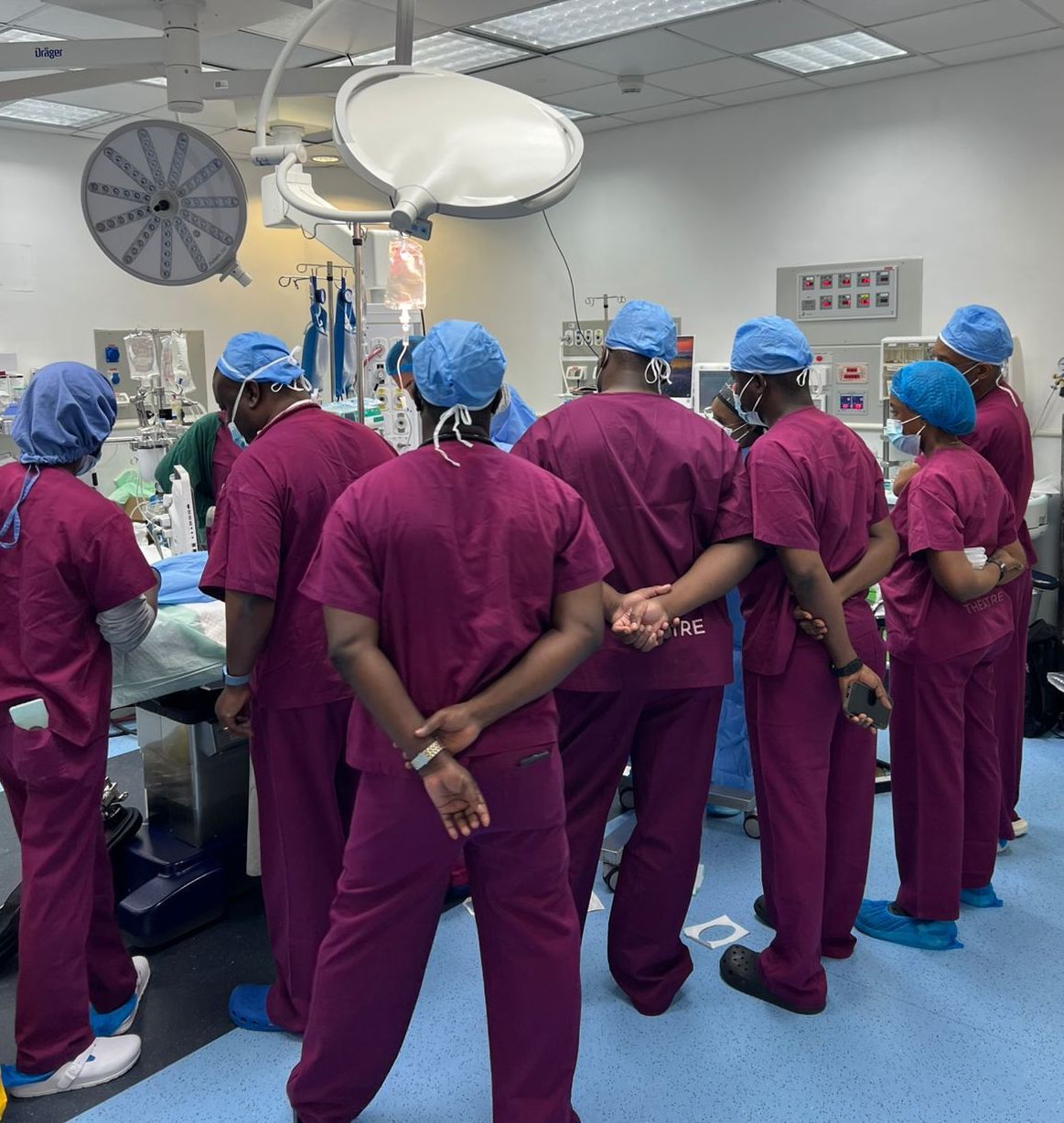
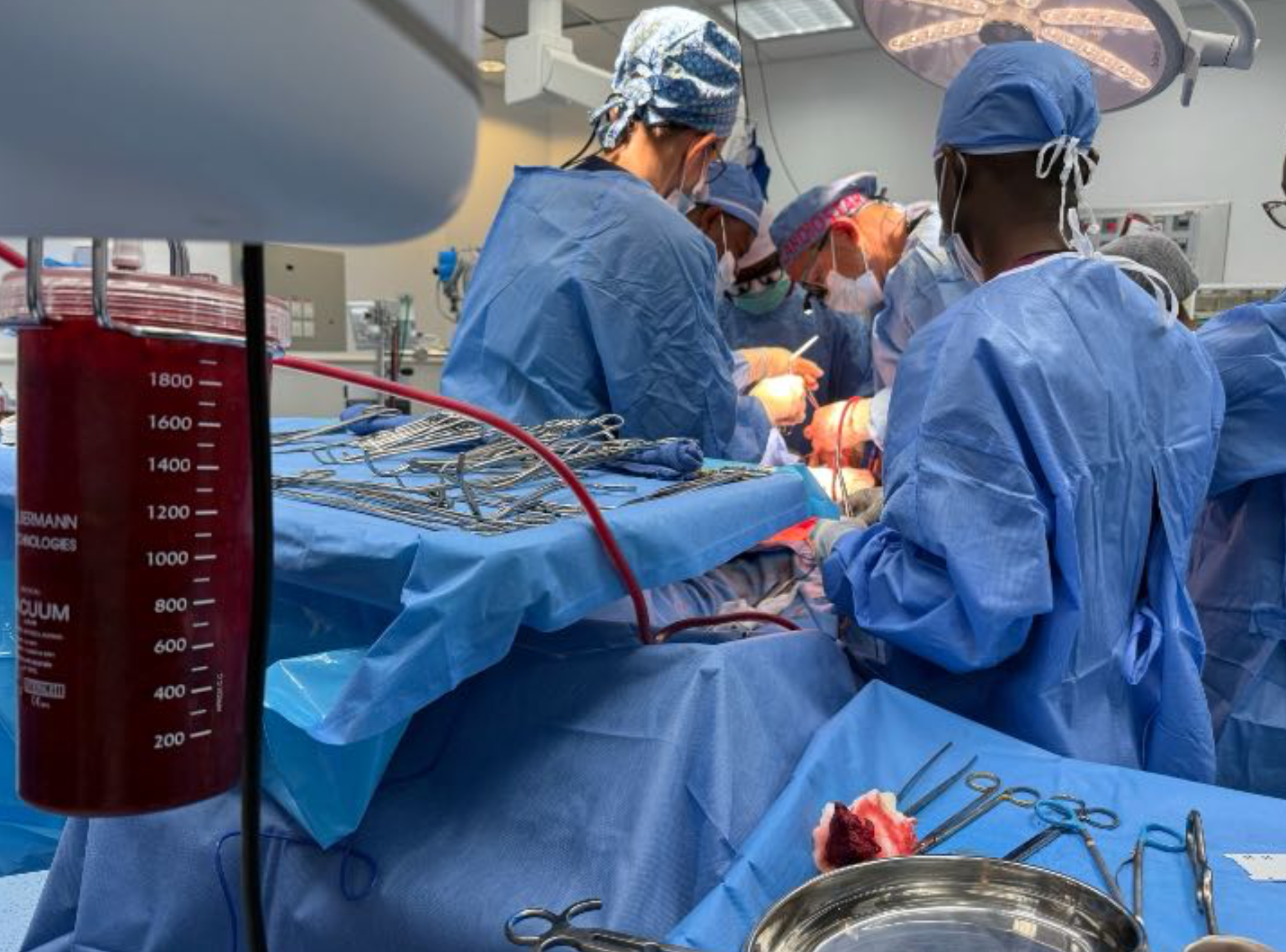
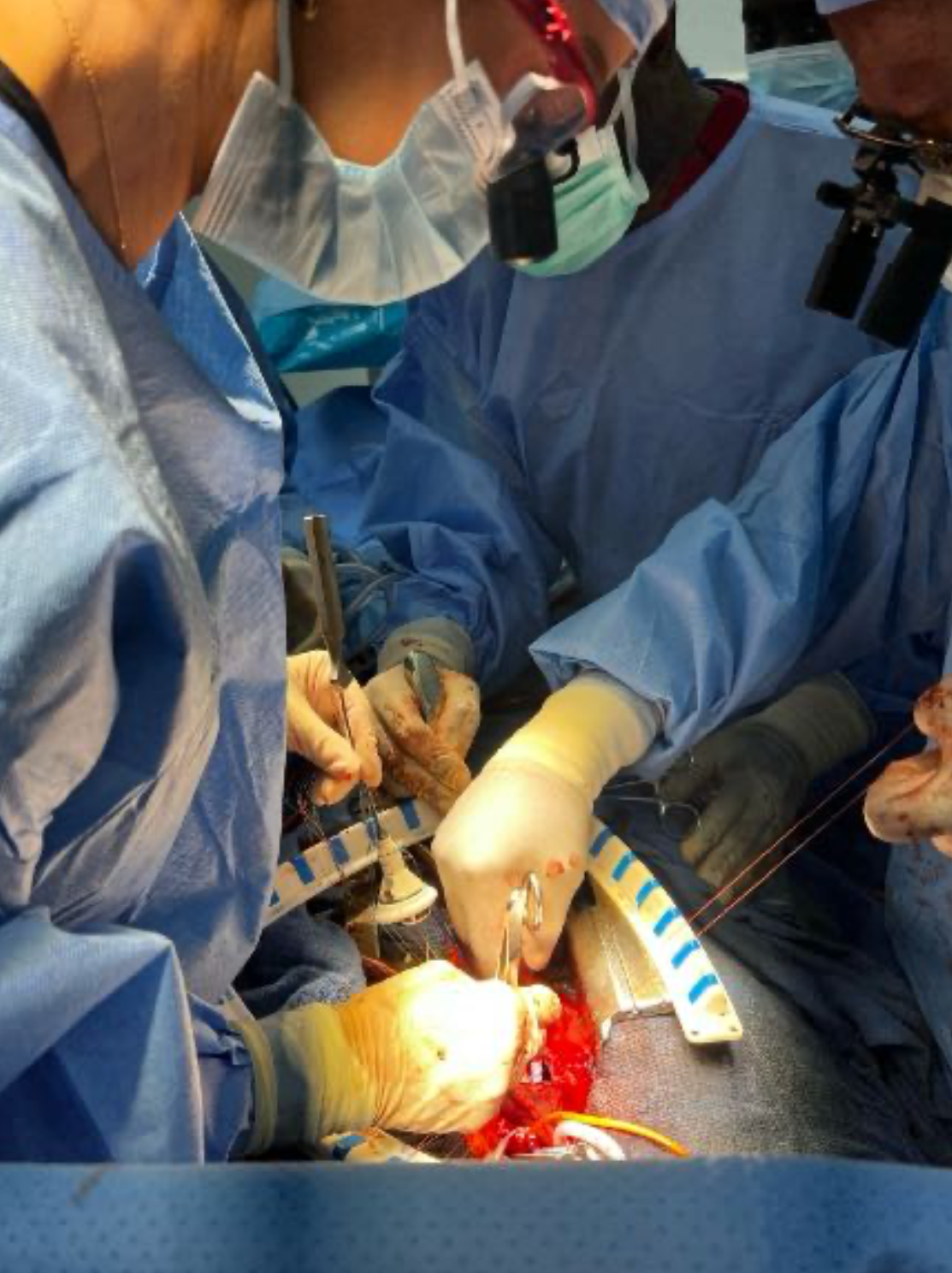
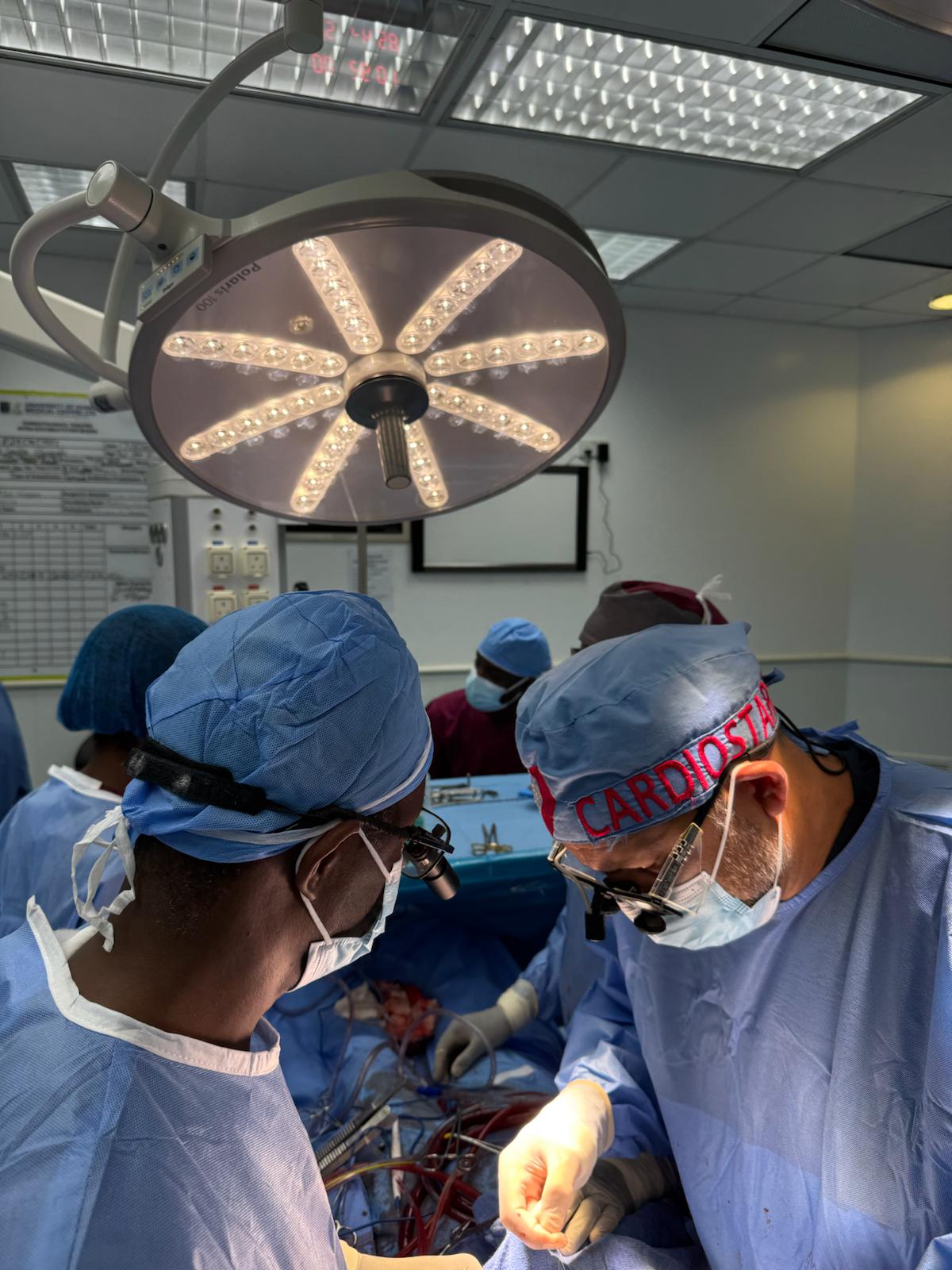
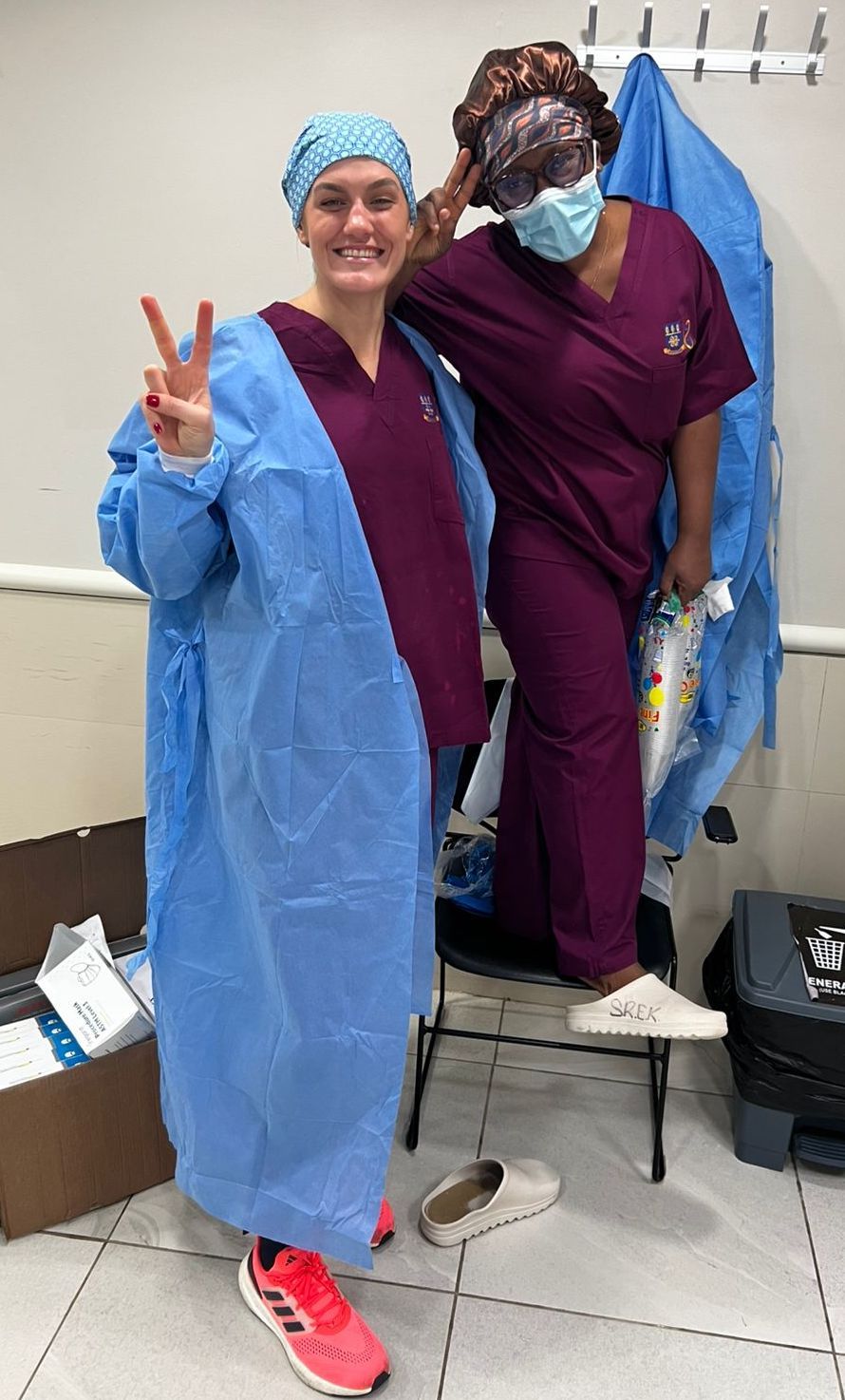
While we are fortunate to have the support of countless generous donors who make these efforts possible, we feel particularly indebted to Edwards Lifesciences, Braille, Biotin fios, Potengy Produtos hospitalares and Dra Cherie for their invaluable contributions. Their continued support was critical to the success of our mission in Accra. This mission would not have been possible without their facilitation of prosthetic heart valves, sutures, connectors, bovine pericardium patches, scrubs as well asEdwards Lifesciences’generous donation ofessential surgical
materials. Theircontributions ensuredthat we could providehigh-quality care and perform complexsurgeries on patients inneed, significantly
improving their outcomes and quality of life.
Education is a very important aspect of every CardioStart mission, and it extends far beyond the operating room. The transmission of knowledge within a multidisciplinary team is crucial, especially in a setting like the UGMC, Accra, which hosts numerous medical students and residents. It is essential to provide education not only in the surgical aspects of cardiac surgery but also in the broader spectrum of care, including perfusion, anesthesia, and the critical role of intraoperative transesophageal echocardiography. These areas are fundamental in ensuring successful outcomes for patients undergoing complex procedures. Equally important are the ICU nurses, whose expertise in post-operative care is vital for managing critically ill patients after cardiac surgery. Their ability to navigate the complexities of post-operative recovery significantly influences patient outcomes. Furthermore, the daily medical rounds with the multidisciplinary team were an invaluable learning experience. These rounds fostered cohesion and a shared understanding of each patient’s clinical status, allowing us to develop logical, well-informed treatment plans. The collaborative approach not only enhanced our medical knowledge but also strengthened the overall care provided to our patients.
The cardiac surgery partnership between cardio start and UGMC in Accra has shown remarkable progress in recent years. It’s clear to see the dedication and passion that the local team has invested in the program, and the strong support provided by the hospital’s administration is playing a crucial role in its ongoing development. This combined effort has resulted in notable strides in improving the quality of care and expanding the reach of the services offered. Although there is still a journey ahead to make the center a recognized hub of excellence in the field, the current momentum is promising.
Dr. Baffe Gyan and Dr Gordon Offei and their entire team have been fundamental to this success. Their commitment to advancing cardiac care in Ghana is inspiring, and they continue to overcome challenges with resilience and determination. While there are undoubtedly obstacles to face, the shared vision of enhancing the program’s capabilities ensures that these hurdles can be addressed and improved upon over time. Together, the team is cultivating a sustainable future for the cardiac surgery program that will benefit countless patients in the years to come.
This initiative is of vital importance for the population of Ghana, where access to high-quality healthcare has long been achallenge. The continued development of this program offershope not only for those directly affected by heart disease butalso for the broader community, fostering a future where life-saving surgeries are accessible and effective. As the programcontinues to grow, it will undoubtedly become a beacon of hopefor many, demonstrating that with vision, perseverance, andcollaboration, great change is possible. Hope is not just a dream; it is a reality being built every day.
Acknowledgments:
Edwards Lifesciences Foundation for donating biologic heart valves, rings and cannulas;
Braille for donating Pericardium patches and connectors;
BioLine fios de sutura for donating sutures, hemosthatics, bone wax, pacing wires;
Potengy Produtos Hospitalares for donating mechanical valves and bio glue;
Dra Cherie for donating ICU Nurses scrubs.
Arrythmia Alliance for funding allocation from ELS and support.



